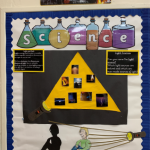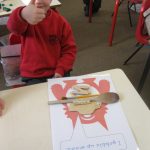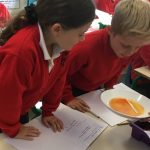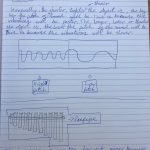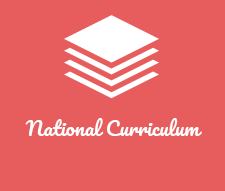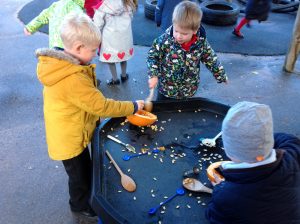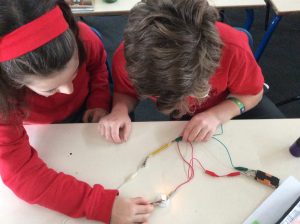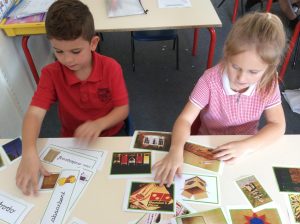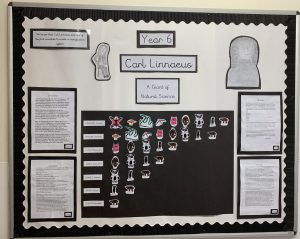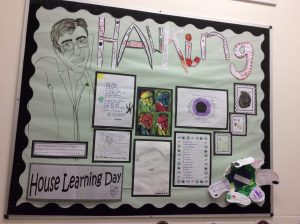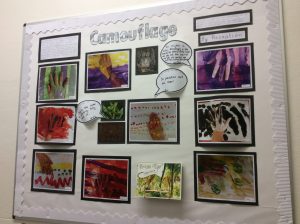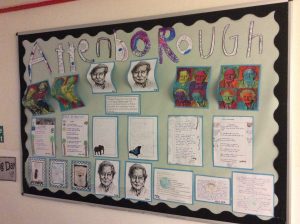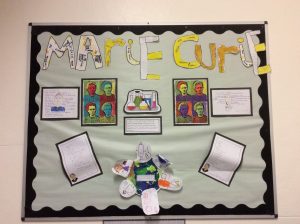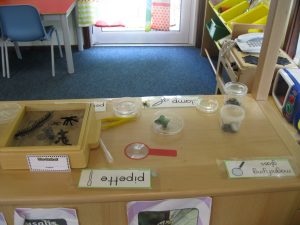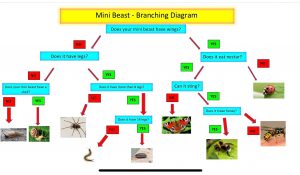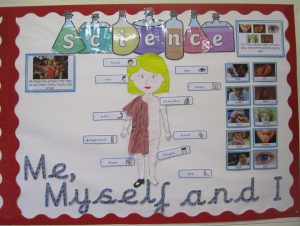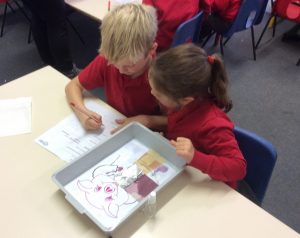“You can use the knowledge and skills throughout your whole, entire life.” Caitlin
“You get to learn things you didn’t know about.” Joshua
“You learn interesting facts. You can learn from other’s discoveries and make you own.” George
“Science helps you learn, gives you knowledge and helps you to develop your skills.” Atticus
At Manland, science teaching and learning focuses on developing children’s ideas and ways of working so that they are able to make sense of the world in which we live, through exploration, discovery and investigation.
We use the National Curriculum, together with White Rose Science planning, to provide an engaging curriculum that fosters in our pupils a sense of excitement and curiosity about our universe, combined with a respect for living and non-living things. This ensures our pupils gain a strong subject knowledge, which progresses throughout their time at Manland, whilst acquiring the skills to help children think scientifically.
Our pupils show great passion for science and investigating. In weekly lessons, our pupils learn science through practical work, ranging from learning how electricity travels through a circuit to recording the length and pattern of shadows in the day. Within lessons, pupils ask questions whilst planning and carrying out investigations teaches our pupils the importance of accuracy and problem solving.
At Manland, lessons enable pupils to make strong links with other subjects to further develop their English and maths skills. There are opportunities to create links to other subjects such as geography (when learning about the role of the water cycle) or in P.E. (to support understanding of nutrition and exercise). Teachers further enable pupils to develop their use of scientific language, through the precise use of scientific vocabulary in their verbal and written explanations.
Science learning extends well beyond the classroom and our pupils experience a wide range of enrichment activities to understand how science is linked to the real world. This includes: science workshops, Science Day, House Learning Days, trips and visits from scientists. We also see our school grounds as a wonderful learning resource. Our wildlife area supports the study of living things and the children love exploring and learning in their community.
Our Aims – Science National Curriculum
The National Curriculum for science aims to ensure that all pupils:
- Develop scientific knowledge and conceptual understanding through the specific disciplines of biology, chemistry and physics
- Develop understanding of the nature, processes and methods of science through different types of science enquiries that help them to answer scientific questions about the world around them
- Are equipped with the scientific knowledge required to understand the uses and implications of science, today and for the future.
Ways to Develop Science Skills at Home
Watch some of the David Attenborough documentaries. After watching children could show their understanding through:
o Writing about their favourite animal featured in the show.
o A letter to Sir David Attenborough about what they liked and questions they have.
o A letter to humans from an animal explaining how we are impacting their environment and what we should do.
Watch some Steve Backshaw videos.
After watching children could show their understanding through:
o Writing a list of questions they would like to send to Steve Backshall.
o Drawing and writing about their own deadly creature that could be featured in Deadly 60.
o Writing about why we should appreciate sharks more and why they are not as scary as they seem.
- Read the book Dr.Seuss book ‘Bartholomew and the Oobleck.’ Oobleck is simply a mixture made with roughly 2 parts cornflour to 1 part water and it acts like a solid under force and a liquid when it is not under force. Make some Oobleck and explore its properties.
- Try growing some vegetable tops.
- There are a number of organisations who have some great ideas and resources for exploring nature at home.
Plant Life – Discover Wild Plants (spotter sheets)
Woodland Trust Nature Detectives
Visit and explore a range of websites
- Practical Action provide free STEM resources to engage children in real-world issues including climate change, renewable energy, food security and disaster preparedness. Practical Action
- Science Bob videos, information and fun experiments to aid children’s science understanding.
- A collection of simple, nature-based activities you can enjoy together at home or in the garden. Woodland Trust
- STEM Activities
- STEM Club Activity Sets
- Science Sparks
- If you haven’t got a lot of kit at home, but want to take part in some science simulations, then there’s plenty to play with on the Phet website.
- The Jodrell Bank Observatory is putting together a bank of ideas and resources to encourage you to focus on the wonder of the night skies.
You could also help your child to:
- Investigate and explore the world around them e.g. nature walk
- Observe changes overtime e.g. planting and growing bulbs; seasonal changes, the phases of the moon.
- Look for relationships between cause and effect e.g. cooking, floating and sinking.
- Identify and classify things e.g. sorting leaves according to type
- Carry out simple investigations e.g. Which materials are magnetic?
Science at Manland


